Bulk Persian Gum for Export – Wholesale Zedo Gum Supplier
ACPFOOD is a reliable source for bulk Persian gum for export, catering to global wholesale gum suppliers, natural resin importers, and bulk dried gum distributors. Our Zedo gum (also known as Gum Zedo) is harvested from wild Cerasus avium trees and carefully selected for high purity and consistency. This natural plant gum is commonly used in food production, pharmaceutical formulations, and cosmetic applications, making it ideal for B2B buyers, bulk packaging orders, and private label manufacturers. We offer competitive pricing, fast global shipping, and consistent supply for your ongoing business needs.
Synonyms: Amygdalus lycioides Spach.
Family: Rosaceae
GENERAL DATA
Plant parts: Gum
Cultivation mode: Wild collection
In manufacturing: Pharmaceutical, livestock and poultry feed, textile, painting, glue, lithography, boating, coal production, fertilizer, ink making, paper making, cosmetics, coal glue.
In food: Dairies.
Industries That Use Persian Gum (Gum Zedo)
Derived mainly from Prunus lycioides and other wild almond/cherry trees
🌿 What Is Persian Gum (Gum Zedo)?
Persian Gum is a natural, odorless exudate resin collected from wild Prunus species. It appears as transparent or amber-colored granules and is water-soluble. It’s prized for its binding, thickening, and emulsifying properties—similar in function to gum arabic or tragacanth.
1. Food & Beverage Industry
Persian Gum is used as a natural food additive, particularly in traditional and regional products.
-
Stabilizer & Thickener – Used in:
-
Ice creams, yogurts, and dairy desserts
-
Fruit juices, sherbets, and soft drinks
-
Traditional sweets and confections (e.g., nougats, herbal candies)
-
-
Fiber Source – Adds soluble dietary fiber
-
Sugar Replacement Support – In low-calorie or diabetic-friendly foods, it helps mimic mouthfeel and consistency
✅ Recognized for being tasteless, odorless, and free of known allergens—making it ideal for clean-label applications.
2. Pharmaceutical & Herbal Medicine Industry
-
Emulsifier and excipient in:
-
Syrups and oral suspensions
-
Tablets and capsules (as a binder or disintegrant)
-
Herbal powders and formulations
-
-
Traditional uses:
-
Soothing digestive system
-
Mild demulcent in cough and throat remedies
-
Used as a carrier for herbal extracts
-
Persian Gum is valued for its mucilaginous, non-irritating profile, making it suitable for sensitive formulations.
✅ Marketed as a natural gut-soothing ingredient with added functional texture.
4. Cosmetic & Personal Care Industry
-
Used in:
-
Natural gels and emulsions (as a stabilizer or thickener)
-
Face masks and peel-off gels
-
Herbal toothpastes and mouthwashes
-
-
Skin-soothing properties: Some formulations include Persian Gum as a gentle base for herbal actives
Often found in traditional, herbal, or clean-beauty lines.
5. Printing & Industrial Applications (Limited Use)
-
Can serve as a biodegradable binder or adhesive in eco-friendly formulations
-
Potential application in paper sizing, textile printing, or natural glues
These uses are still niche but growing in eco-product innovation.
6. Academic & Scientific Research
-
Studied for:
-
Emulsification and viscosity-modifying properties
-
Comparisons with gum arabic, tragacanth, and xanthan gum
-
Gut health and prebiotic potential
-
Research suggests it may have broader potential in functional food and pharmaceutical formulations.
✅ Summary of Key Applications:
| Industry | Common Applications |
|---|---|
| Food & Beverage | Stabilizer, thickener, fiber additive, emulsifier |
| Pharmaceutical | Excipient in tablets, suspensions, herbal blends |
| Nutraceutical | Gut health, detox powders, fiber supplements |
| Cosmetic & Personal Care | Natural gels, masks, toothpastes |
| Industrial (Niche) | Biodegradable adhesives, paper sizing, natural glues |
| Academic & Research | Functional polysaccharide studies |
🌱 Key Properties:
-
100% natural, plant-based
-
Odorless and flavorless
-
Rich in soluble fiber and non-toxic
-
Biodegradable and food-safe
Here’s a professional comparison table between Persian Gum (also known as Gum Zedo) and Gum Arabic (also known as Acacia Gum).
🧾 Product Comparison Table: Persian Gum vs. Gum Arabic
| Feature / Property | Persian Gum (Gum Zedo) | Gum Arabic (Acacia Gum) |
|---|---|---|
| Botanical Source | Prunus lycioides and other Prunus spp. (wild almond/cherry trees) | Acacia senegal and Acacia seyal trees (mainly from Africa) |
| Product Type | Natural exudate gum/resin | Natural exudate gum/resin |
| Physical Appearance | Transparent to amber granules, irregular shapes | Pale yellow to white granules or powder |
| Solubility | Water-soluble (slightly slower than gum arabic) | Highly water-soluble (fast dissolving) |
| Viscosity | Moderate; forms a light gel or thick liquid when hydrated | Low viscosity even at high concentrations |
| Taste & Odor | Tasteless and odorless | Slightly sweet, neutral odor |
| Main Uses | Food additive, pharmaceuticals, herbal remedies | Food additive, pharmaceuticals, cosmetics, industrial uses |
| Food Industry Applications | Stabilizer, thickener in dairy, confectionery, beverages | Emulsifier, stabilizer in soft drinks, confections, flavors |
| Pharmaceutical Use | Binder, disintegrant in tablets; emulsifier in suspensions | Excipient, binder, film-former, capsule coating |
| Nutraceutical Use | Source of soluble fiber, gut health support | Prebiotic fiber, gut health, detox support |
| Cosmetic Applications | Herbal face masks, gels, natural soaps | Skin-tightening gels, emulsions, lotions, toothpaste |
| Traditional Medicine Role | Soothes digestion, oral hygiene, herbal carriers | Soothes throat, aids digestion, used in Ayurvedic and Unani |
| Allergen Risk | Low (rare) | Extremely low (considered hypoallergenic) |
| Stability | Good; forms stable gels at room temperature | Excellent; high shelf life and temperature stability |
| Availability | Regionally sourced (Middle East, Central Asia) | Commercially available worldwide (especially Africa) |
| Export/Commercial Potential | Niche but growing demand in clean-label and herbal sectors | High global demand as a standard hydrocolloid |
✅ Summary of Key Differences
| Topic | Persian Gum | Gum Arabic |
|---|---|---|
| Solubility | Slower hydration; may need longer soaking | Quick hydration and dissolution |
| Viscosity Behavior | Forms thicker gels in smaller amounts | Low-viscosity, ideal for emulsions |
| Functional Strength | Better for gelling and thickening | Better for emulsifying and film-forming |
| Global Use | More common in traditional/herbal products | Widely used across industrial food sectors |
| Market Positioning | Natural, regional, artisanal | Mainstream, commercial, global |
🌿 Which One Should You Use?
-
Use Persian Gum when looking for:
-
Herbal/traditional formulations
-
Gelling or thickening in natural blends
-
Clean-label, artisanal product appeal
-
-
Use Gum Arabic when you need:
-
A reliable, fast-dissolving emulsifier
-
Consistency across global food or pharma standards
-
Large-scale supply for mass production
-
PRODUCT NAME IN DIFFERENT LANGUAGES
Persian Name: Zadou- Zedoo- Samghe Farsi/ زِدو- صَمغِ فارسی- زَدو
German Name (Deutschland, Austria, Switzerland): –
French Name (France, Belgium, Switzerland, Quebec): –
HARVEST CALENDAR
Feb
Mar
Apr
May
Jun
Jul
Aug
Sep
Oct
Nov
Dec
To order Persian Gum, please contact us.
Gum Zedo Chemical Constituents
Palmitic, stearic, oleic and linoleic acids.
To order Gum Zedo, please contact us.
Zedo Gum Temperament
Hot and dry
4. Dissolve it in vinegar and rub. It is beneficial for removing pimples in children body.
5. Gently pulverize 5 grams of it each time and eat it with cold water. It is useful for relieving chronic cough.
Zedo Dose
5 grams.
🧴 Nutrition Facts – Persian Gum (Gum Zedo)
Exudate from Prunus lycioides (and other wild almond/cherry trees)
Serving Size: 5 g (typical for herbal chewing or supplement use)
Calories: ~7 kcal
| Nutrient | Amount per 5g | Per 100g |
|---|---|---|
| Total Fat | 0 g | 0 g |
| Cholesterol | 0 mg | 0 mg |
| Sodium | 1 mg | 20 mg |
| Total Carbohydrate | 1.8 g | 36 g |
| • Dietary Fiber | 1.5 g | 30 g |
| • Sugars | 0.1 g | 2.1 g |
| Protein | 0 g | 0 g |
Functional Composition (Per 100g):
| Compound / Component | Estimated Content | Role |
|---|---|---|
| Polysaccharides | ~85–90% | Prebiotic, soluble fiber |
| Tannins | Trace | Astringent, antioxidant |
| Phenolic Compounds | Trace | Antioxidant, anti-inflammatory |
| Minerals (K, Ca, Mg) | Low amounts | Supportive |
💠 Persian Gum is a natural exudate traditionally used as a chewing gum and for herbal remedies supporting digestive and respiratory function. It is a sugar-free, calorie-light, plant-based product with high soluble fiber content.
⚠️ This product is not a food item in the conventional sense. For chewing or industrial/herbal formulations only. Use in moderation.
Percent Daily Values are based on a 2,000-calorie diet. Nutritional values are approximate and based on lab-tested samples from wild species.
To order Gum Zedo, please contact us.

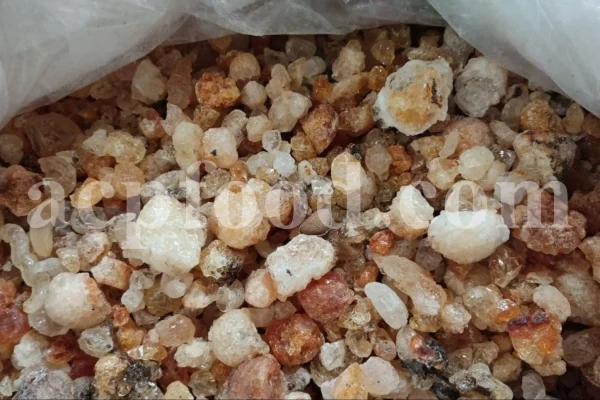
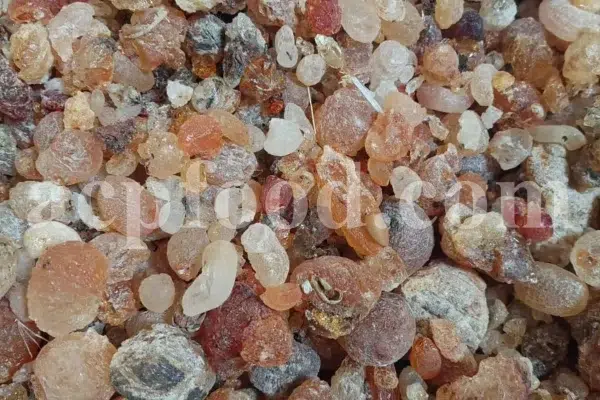
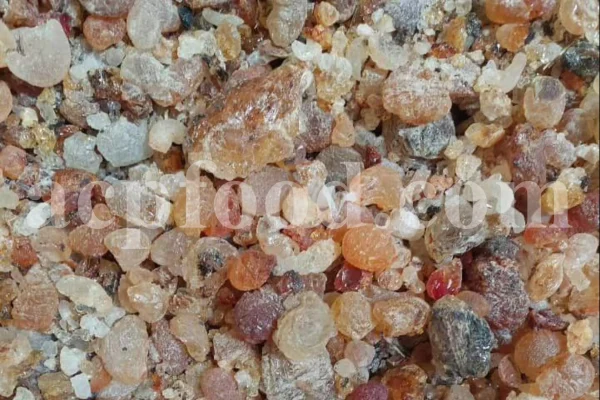
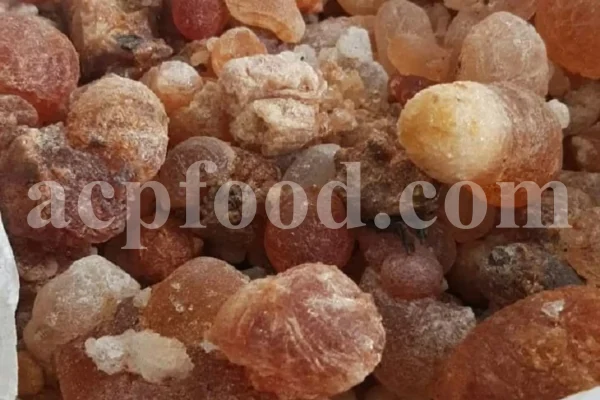
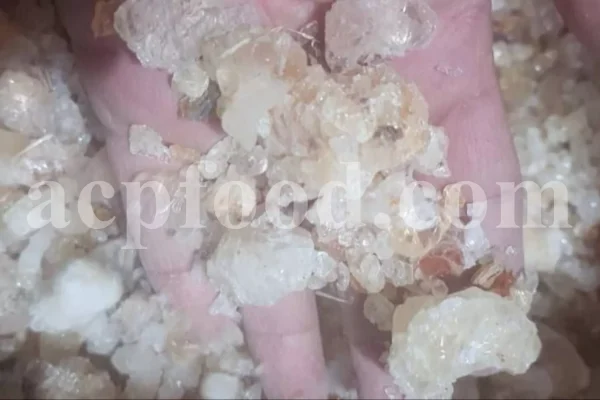
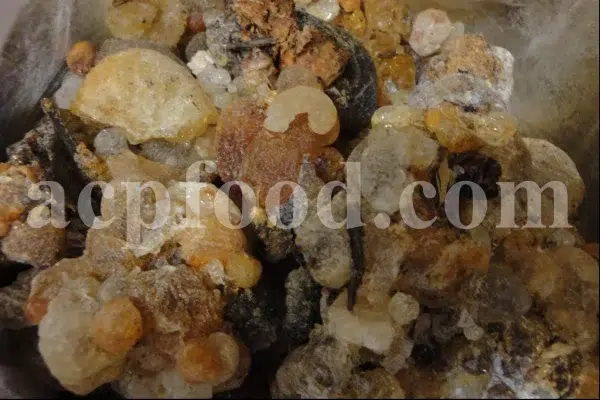
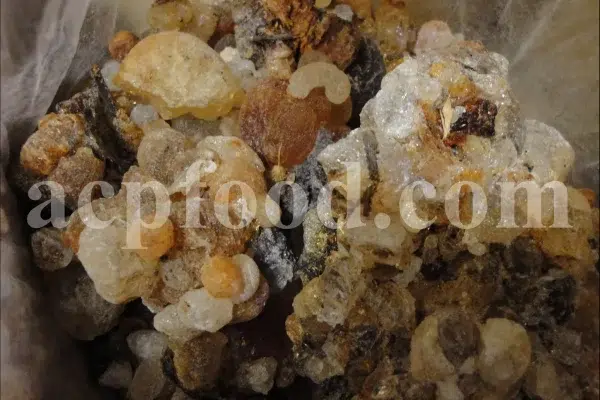

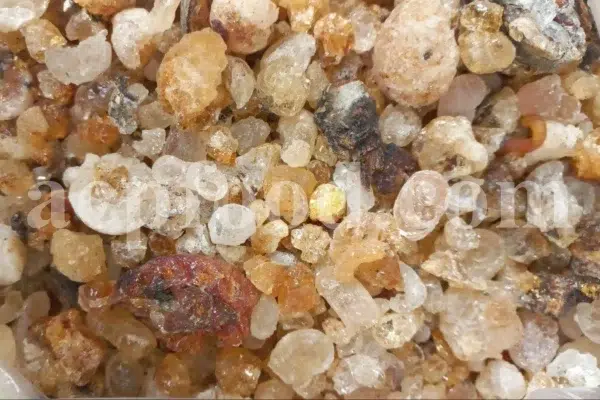
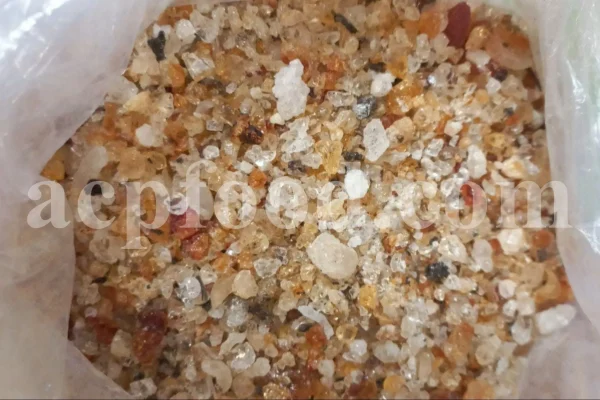
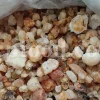
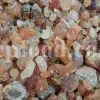
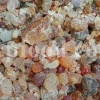
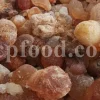


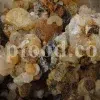

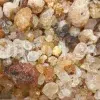

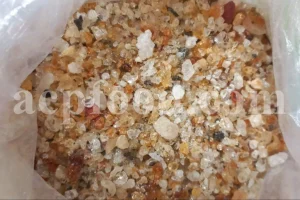
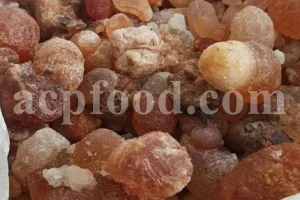
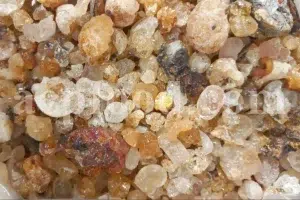

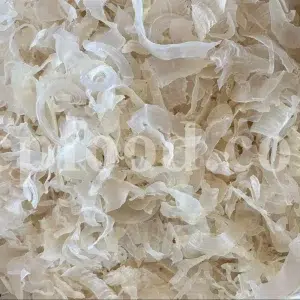
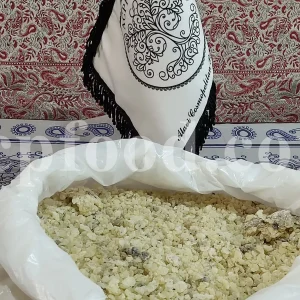


Reviews
There are no reviews yet.